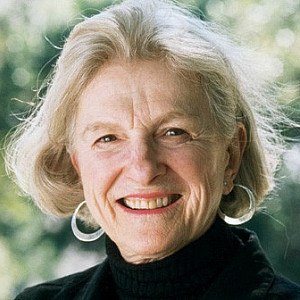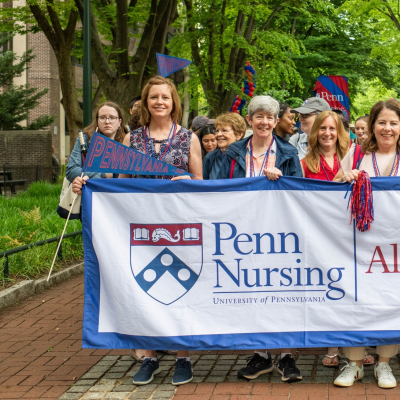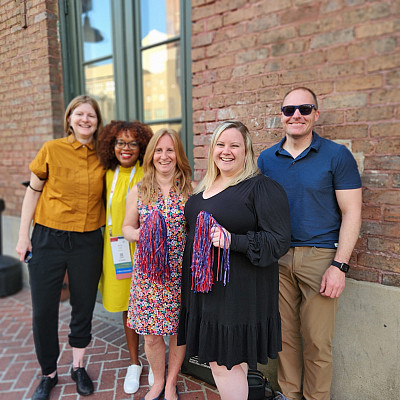
Claire M. Fagin, PhD, FAAN, RN
Professor of Nursing and Dean Emerita
When Claire Fagin was studying for her doctorate in the mid 1960s, children were separated from their parents when they were hospitalized. Dr. Fagin experienced this herself, when her own child was hospitalized — and she decided to study the phenomenon, writing her dissertation on “rooming in.” This groundbreaking research demonstrated the critical importance to patients and nurses of allowing parents to room with their hospitalized child. Widely publicized nationally, including through television appearances by Dr. Fagin, her dissertation and subsequent research helped transform hospital practices nationwide. Hospitals began allowing parents to stay overnight with their children, and by 1978, 62 percent of hospitals allowed 24-hour visiting in pediatric units.
Description
Developing the Field of Psychiatric Nursing
After graduating from the second nursing class at Wagner College, Dr. Fagin worked in pediatric psychiatric nursing in hospitals for a few years before deciding she needed more of a theoretical foundation. She enrolled in the new master’s degree program in psychiatric nursing at Columbia University. Later as a nursing consultant to the National League for Nursing, she helped define the functions and qualifications for psychiatric nursing. Dr. Fagin then helped develop the pediatric psychiatric unit at NIH’s Clinical Center.
Demonstrating the Value of College-Educated Nurses
Next, Dr. Fagin earned her PhD at New York University and then taught in the psychiatric/mental health program there. In 1965, she initiated a master’s degree program in child and adolescent psychiatric nursing at New York University and directed that program and the adult mental health nursing graduate program.
In 1969, Dr. Fagin moved on to Lehman College, a division of the City University of New York, where she became professor and chair of the nursing department. She once again gained national attention for her work, this time for creating the first baccalaureate program that prepared nurses for primary care practice and demonstrated that college-educated nurses could do both the theory and practice of nursing.
Leading Penn to Become the Top Nursing School
In 1977, Penn Nursing recruited Dr. Fagin as dean. Over the next 14 years, she developed landmark education and research programs and recruited both well-known faculty and faculty who were poised to become stars in their fields. Based on her early experiences using publicity to transform hospital visiting practices, Dr. Fagin again tapped into the power of publicity, this time to raise the visibility of Penn Nursing.
Dr. Fagin spearheaded the development of a new doctoral program in 1978, and required all faculty members to have doctoral degrees. She established some of the first endowed chairs for nursing. Under her leadership, the school developed programs in key areas such as gerontology, an array of dual degrees and minors, and the Barbara Bates Center for the Study of the History of Nursing.
To develop research capability, in 1980 Penn Nursing established the first privately-funded center for nursing research in the country. The center drew millions of dollars in external grants and supported faculty in overcoming barriers to obtaining NIH grants and publishing their work in top-tier journals within and outside of nursing. Known today as the Office of Nursing Research, it is one of the only dedicated nursing school research offices nationwide, and supports scientific discoveries and translation of nursing knowledge into new strategies to advance healthcare. Today, Penn Nursing is among the top nursing schools nationwide for federal research funding.
When Dr. Fagin left the dean’s office to return to the faculty in 1991, Penn Nursing was among the top nursing schools in the country—a position it retains today. The school also had more faculty members in the American Academy of Nursing and the Institute of Medicine (now called the Health and Medicine Division of the National Academies of Sciences, Engineering, and Medicine) than any other nursing school. In 1992, Dr. Fagin herself was the first Nurse Scholar-in-Residence at the Institute of Medicine, serving as a model for the American Academy of Nursing/Institute of Medicine program.
Restoring the Penn Sense of Community as President
Strengthening the University of Pennsylvania community was Dr. Fagin’s priority as interim president. When she accepted the position in 1993, there was a great deal of contention and racial tension at Penn, and a loss of major donors. Dr. Fagin helped re-build the Penn community, working with the university’s Commission on Strengthening the Community to engage faculty, staff, and students around free speech, race relations, and sexual harassment. She also traveled throughout the country re-making friends.
By the time Dr. Fagin handed over the job to the new president a year later, the racial problems had been resolved, the caring community had been restored, and the university had raised more funds than any year in the previous decade. Dr. Fagin had also paved the way for two other women to become presidents of Penn.
Setting High Standards and Breaking Barriers
Dr. Fagin returned to the nursing faculty and focused on geriatric nursing until her retirement from the university in 1996. Working as a consultant after that, she first led a project on the burden of care for the Millbank Foundation, and then directed The John A. Hartford Foundation’s Building Academic Geriatric Nursing Capacity Scholars Program. Managed by the American Academy of Nursing, the program established nine Centers of Geriatric Nursing Excellence — including one at Penn from 2001-2010 — and developed academic leaders through a scholar and fellow awards program.
Throughout her career, Dr. Fagin has been involved in leading thinking and practice in nurse education, nursing and health policy, health advocacy, geriatric nursing, program leadership and administration. After demonstrating why parents should be allowed to room with their hospitalized children, she surveyed changes in hospital visitation, studied the cost-effectiveness of nursing research and nurse practitioners, and investigated nursing home reform. Along with her pioneering research and personal accomplishments, Dr. Fagin has advanced nursing by setting high standards for nursing education, breaking barriers, advocating for the role of nursing, and promoting and facilitating the careers of nurse leaders. She has received 15 honorary doctoral degrees and many awards and honors, and written or edited 10 books and more than 90 articles.
Selected Career Highlights
- Living Legend, American Academy of Nursing
- First recipient, Distinguished Scholar Award, and member, Hall of Fame, American Nurses Foundation
- Chair, National Advisory Board, Hartford Foundation Institute for the Advancement of Geriatric Nursing Practice
- Member, Expert Advisory Panel on Nursing, World Health Organization
- 15 honorary doctoral degrees, including from University of Pennsylvania, New York University, and Johns Hopkins University
- Member, four corporate boards
- Honorary Fellow, Royal College of Nursing
- Chair, Lienhard Committee, Institute of Medicine
- Guggenheim Award, Penn Club of New York
- New York Academy of Medicine, Academy Plaque for Exceptional Service










